Filter by
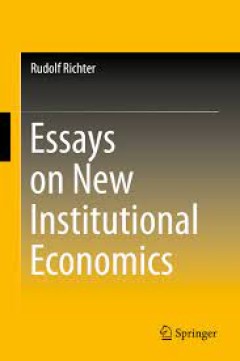
Essays on New Institutional Economics
This collection of essays comprises some of Rudolf Richter’s important contributions to research on New Institutional Economics (NIE). It deals with the central idea, principles, and methodology of New Institutional Economics and explores its relation to sociology and law. Other chapters examine applications of NIE to various microeconomic and macroeconomic issues in the face of uncertainty, …
- Edition
- -
- ISBN/ISSN
- 978-3-319-14154-1
- Collation
- 2 b/w illustrations
- Series Title
- -
- Call Number
- -
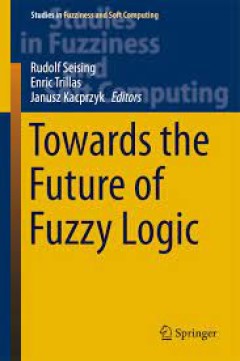
Towards the Future of Fuzzy Logic
This book provides readers with a snapshot of the state-of-the art in fuzzy logic. Throughout the chapters, key theories developed in the last fifty years as well as important applications to practical problems are presented and discussed from different perspectives, as the authors hail from different disciplines and therefore use fuzzy logic for different purposes. The book aims at showing ho…
- Edition
- 1
- ISBN/ISSN
- 978-3-319-18749-5
- Collation
- XV, 376
- Series Title
- Studies in Fuzziness and Soft Computing
- Call Number
- -
Recent Advances in Game Theory and Applications: European Meeting on Game The…
This contributed volume contains fourteen papers based on selected presentations from the European Conference on Game Theory SING11-GTM 2015, held at Saint Petersburg State University in July 2015, and the Networking Games and Management workshop, held at the Karelian Research Centre of the Russian Academy of Sciences in Petrozvavodsk, Russia, also in July 2015. These papers cover a wide range…
- Edition
- -
- ISBN/ISSN
- 978-3-319-43838-2
- Collation
- -
- Series Title
- -
- Call Number
- 658.001
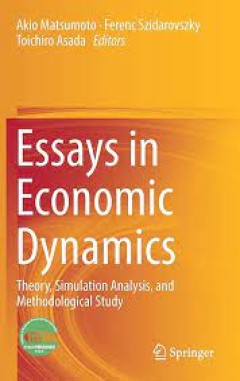
Essays in Economic Dynamics Theory, Simulation Analysis, and Methodological …
This book reflects the state of the art in nonlinear economic dynamics, providing a broad overview of dynamic economic models at different levels. The wide variety of approaches ranges from theoretical and simulation analysis to methodological study. In particular, it examines the local and global asymptotical behavior of both macro- and micro- level mathematical models, theoretically as well a…
- Edition
- -
- ISBN/ISSN
- 978-981-10-1521-2
- Collation
- 79 b/w illustrations
- Series Title
- -
- Call Number
- -

Equilibrium Theory for Cournot Oligopolies and Related Games Essays in Honou…
This state-of-the-art collection of papers on the theory of Cournotian competition focuses on two main subjects: oligopolistic Cournot competition and contests. The contributors present various applications of the Cournotian Equilibrium Theory, addressing topics such as equilibrium existence and uniqueness, equilibrium structure, dynamic processes, coalitional behavior and welfare. Special emph…
- Edition
- -
- ISBN/ISSN
- 978-3-319-29254-0
- Collation
- 23 b/w illustrations, 2 illustrations in colour
- Series Title
- -
- Call Number
- -
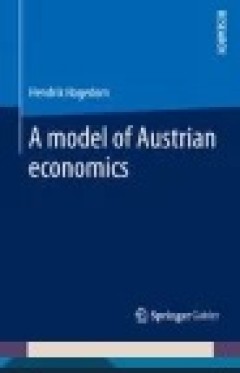
A model of Austrian economics
After the most recent financial crisis it has become clear that there exists a crisis also in economics as a science. The prevailing paradigms have failed to anticipate and to understand the financial crisis. New approaches are therefore needed. Of particular interest should be approaches that combine insights from those parts of economics that are largely neglected by the mainstream. Hendrik H…
- Edition
- Ed. 1
- ISBN/ISSN
- 978-3-658-07077-9
- Collation
- VIII, 104
- Series Title
- -
- Call Number
- 330 HAG m
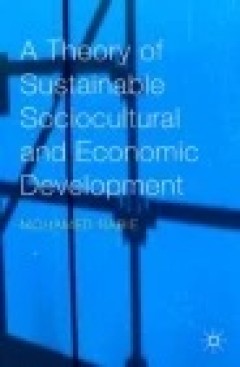
A Theory of Sustainable Sociocultural and Economic Development
Why do some countries' economies struggle to develop, even when they are the focus of so much research and international funding? While recognizing that the obstacles facing poor nations are many and complex, Rabie proposes that the roots of most obstacles are sociocultural; thus, sociocultural transformation and economic restructuring can only be successful when treated as interconnected, mutu…
- Edition
- Ed. 1
- ISBN/ISSN
- 978-1-137-57952-2
- Collation
- XI, 243
- Series Title
- -
- Call Number
- 339 RAB t

The Theory of New Classical Macroeconomics A Positive Critique
This book examines new classical macroeconomics from a comparative and critical point of view that confronts the original texts and later comments as a first dimension of comparison. The second dimension appears in a historical context, since none of the new classical doctrines can be analyzed ignoring the parallelism and discrepancies with the theory of Keynes, Friedman or Phelps. Radicalism o…
- Edition
- -
- ISBN/ISSN
- 978-3-319-17578-2
- Collation
- -
- Series Title
- -
- Call Number
- -

The Theory of Extensive Form Games
This book treats extensive form game theory in full generality. It provides a framework that does not rely on any finiteness assumptions at all, yet covers the finite case. The presentation starts by identifying the appropriate concept of a game tree. This concept represents a synthesis of earlier approaches, including the graph-theoretical and the decision-theoretical ones. It then provides a …
- Edition
- -
- ISBN/ISSN
- 978-3-662-49944-3
- Collation
- -
- Series Title
- -
- Call Number
- -

The Short-Run Approach to Long-Run Equilibrium in Competitive Markets A Gene…
The authors present a new formal framework for finding the long-run competitive market equilibrium through short-run equilibria by exploiting the operating policies and plant valuations. This “short-run approach” develops ideas of Boiteux and Koopmans. Applied to the peak-load pricing of electricity generated by thermal, hydro and pumped-storage plants, it gives a sound and practical method…
- Edition
- -
- ISBN/ISSN
- 978-3-319-33398-4
- Collation
- -
- Series Title
- -
- Call Number
- -
 Computer Science, Information & General Works
Computer Science, Information & General Works  Philosophy & Psychology
Philosophy & Psychology  Religion
Religion  Social Sciences
Social Sciences  Language
Language  Pure Science
Pure Science  Applied Sciences
Applied Sciences  Art & Recreation
Art & Recreation  Literature
Literature  History & Geography
History & Geography